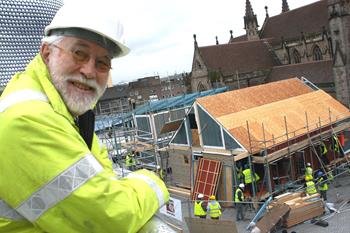Mobile Millennials
What Is A Millennial? Anyone who reached working age in 2000 is considered to be a ‘millennial’. Many of them may now be 30 years old or more, so they are not just youngsters. Lack of Long Term Stability According to a new report by Hays UK Salary & Recruiting Trends 2016, almost half of those that work in construction expect to leave their jobs within the next 12 months. In fact the researchers found that nearly a third plan to leave within six months. This is worrying for employers who need a long term, stable workforce and to see a return on the cost of training all of these people. Different Management Style Called For The survey of 20,000 employees from construction organisations of all sizes throughout the UK argues that a “broad brush” approach to managing millennials means businesses risk losing a generation of talent. It also found that 25% of millennials stated that they wanted to leave their current role due to a lack of future opportunities. Hays feel this suggests that businesses may need to provide more investment in training and clearer communication around progression. Flexible Working & More Holidays Highlighting flexible working as a key priority for this age group, 62% of millennials said this was the most important benefit when looking for a new role, followed by over 25 days holiday allowance. Hays Recommendations With many millennials now transitioning from junior positions into more senior roles, the report recommends that construction firms examine how to improve their staff retention. Unless they do, businesses risk losing the older millennials in their early 30s who are moving into key management positions. According to Andrew Bredin, MD of Hays Construction, “The industry faces well-documented difficulties in attracting younger millennials into the profession, and is quite rightly looking for new ways to make careers in construction appealing for this group. But employers should not overlook those millennials at later stages of their career taking on management responsibility. Employers must put equal focus on this group or they risk losing a generation of managers." Career Progression With career progression identified as being highly important for this group, Hays suggests that businesses should focus on taking a more considered and nuanced approach to incentivising and retaining their newest management generation, while also encouraging junior employees into the profession. Recruit & Retain Challenges With 7million more workers needed by 2018, CITB director of policy, Steve Radley, says that CITB recognise the industry faces challenges both in recruiting and retaining skilled workers. In his view “The best way to address this is by setting out clear progression routes and ensuring people working in the industry have access to the training they need to follow these paths. We launched Go Construct last year to address both of these issues, and we are working closely with employers to help them deliver the training to ensure their employees’ career progression.” Off-Site MMC An important contribution in meeting this need will be factory based manufacture of major components for assembly on site. This will transform the way the industry operates, moving many professional skills closer to manufacturing, using advanced computer technologies, like BIM, to envisage, plan and manage project design and operations more closely and accurately than can be done on site. This is already beginning to happen with enlightened prefabrication, where professionals are working alongside production workers to improve and share mutual understanding, while gaining added respect for the knowledge, skills and capabilities that each member of the ‘team’ can contribute.Visit the Benfield ATT Group website for more information on Mobile Millennials





